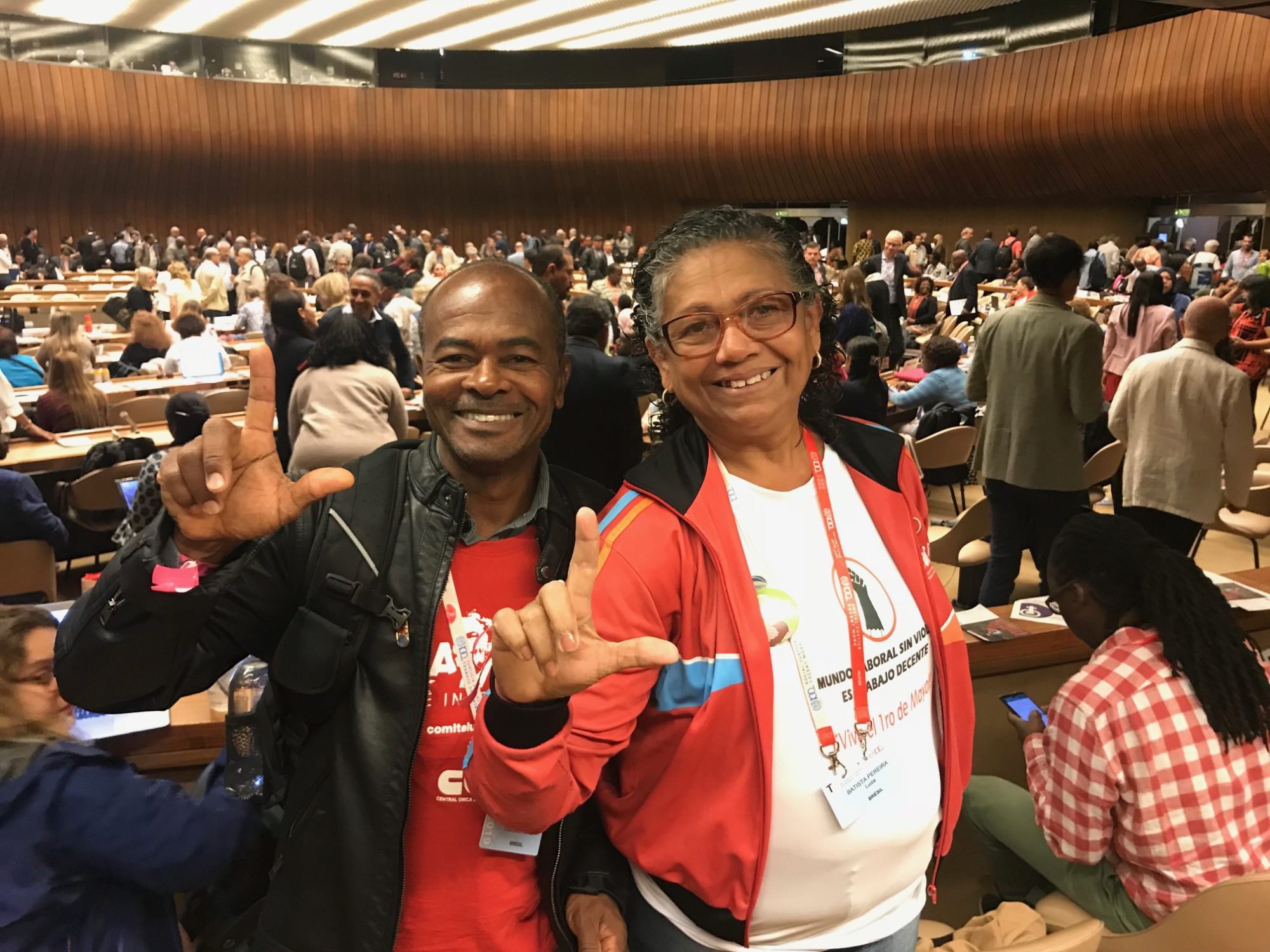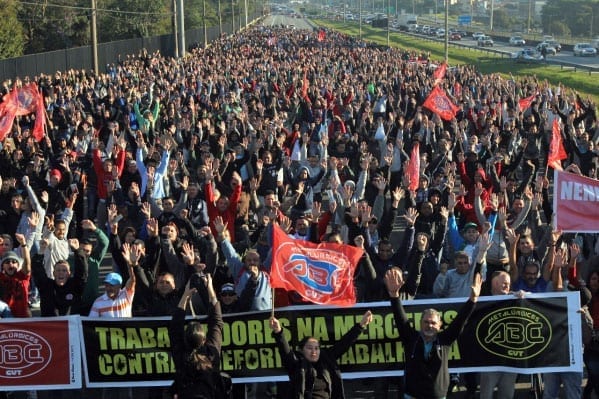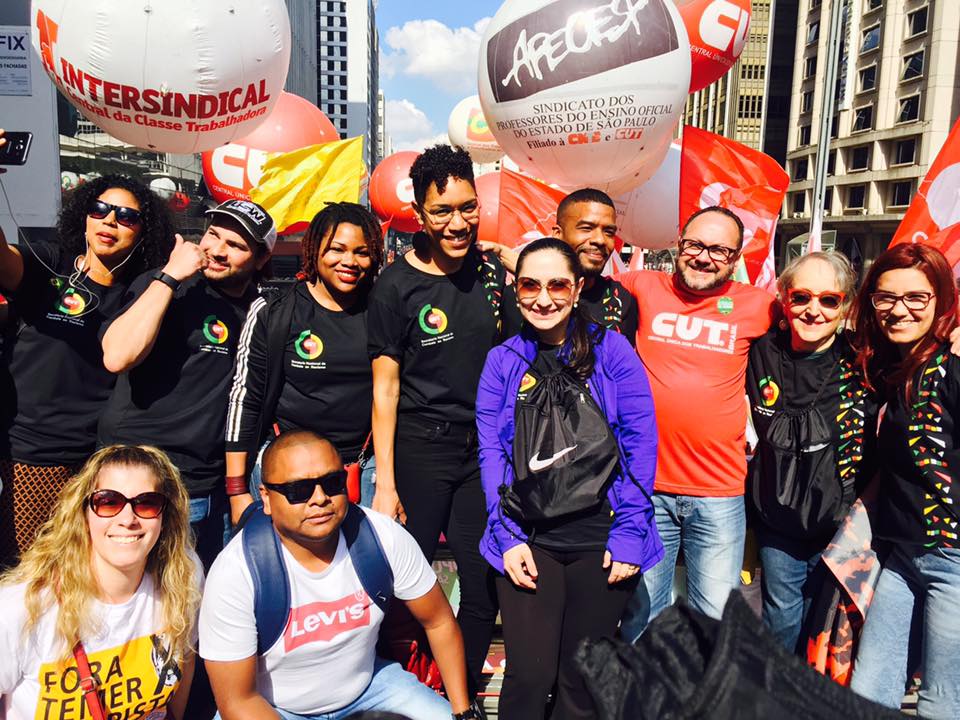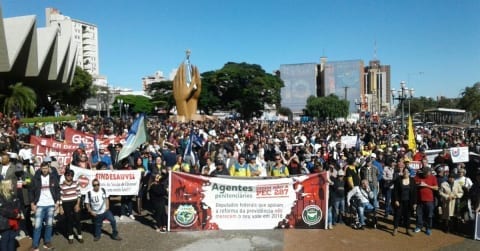
In Brazil, the Solidarity Center works with union partners, such as the domestic worker federation, FENATRAD, to advance worker rights. Credit: Solidarity Center/Alexis De Simone
In Brazil, with the largest labor movement in the Americas, the Solidarity Center works with unions and allied organizations to advance worker rights, especially among the most economically and socially vulnerable, such as Afro-Brazilians, women, LGBTQ and migrant workers.
The Solidarity Center helps Brazilian unions survive and flourish in a politically and economically adverse environment in which workers face harsh new anti-labor laws and challenges to open civic participation. In this setting, the Solidarity Center works with unions to identify and implement new union organizing models that can provide greater institutional, political and financial sustainability, and to improve their collective bargaining and social dialogue skills in order to defend previously-won gains for their membership.
The Solidarity Center partners with unions to improve job opportunities of historically marginalized Afro-Brazilians who often are forced to work for low wages in the informal economy, and to promote their civil and human rights, as they are systematically victimized by police violence and mass incarceration.
Together with the National Confederation of Garment-Sector Workers (CNTV), the National Confederation of Service and Retail Workers (
CONTRACS), the International Domestic Workers Federation (
IDWF) and Brazil’s National Federation of Domestic Workers (
FENATRAD), the Solidarity Center conducts trainings to equip women to advocate for safer working conditions, an end to gender-based violence and harassment, more equitable salaries on the job, and to assume more active leadership roles in their unions.
The Solidarity Center also works with unions and other members of civil society to address human rights challenges and security threats against rights defenders. In particular, in conjunction with the Central Unica dos Trabalhadores (CUT) and the União Geral dos Trabalhadores (UGT), the Solidarity Center promotes the civil, political and social rights of workers vulnerable to violence in the workplace and in society, including
Venezuelan migrant workers, Afro-Brazilian workers and rural workers in the Amazon region.




